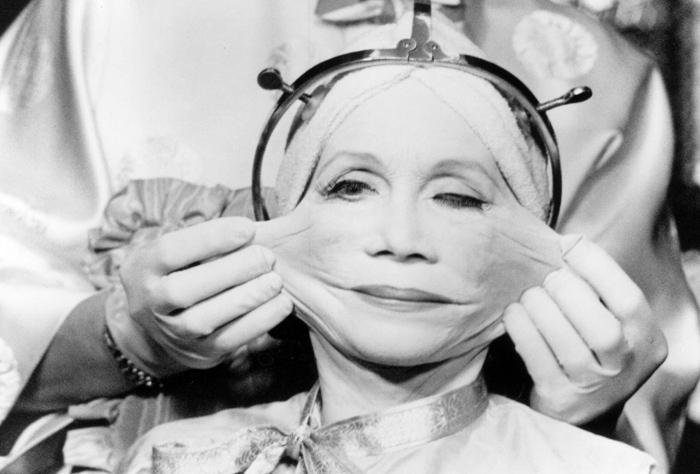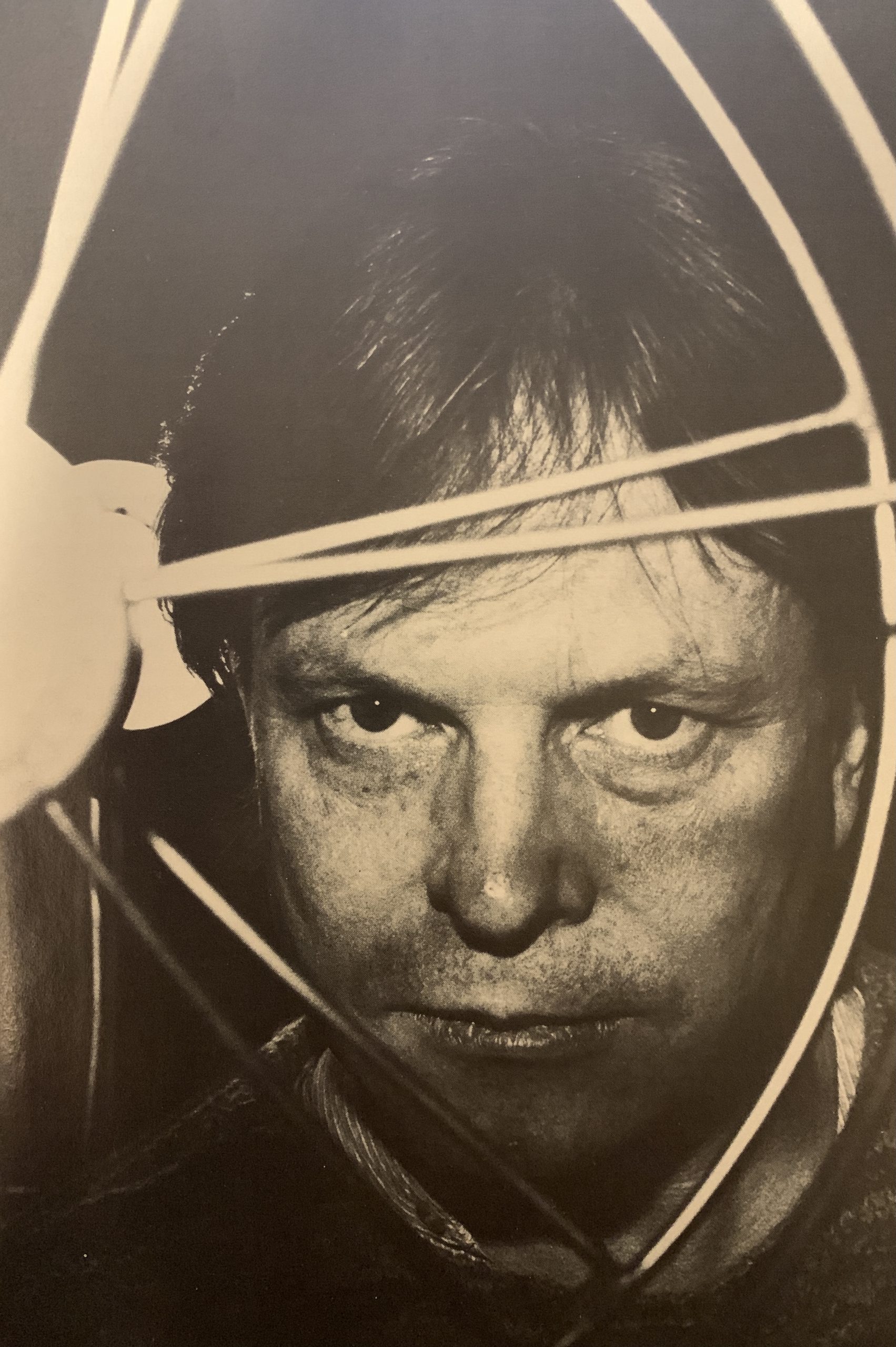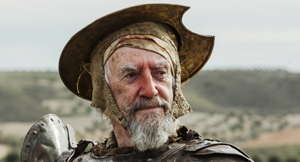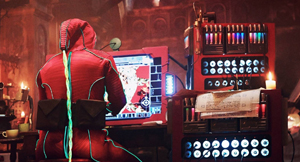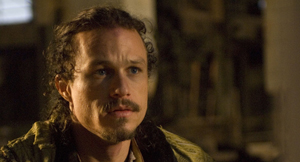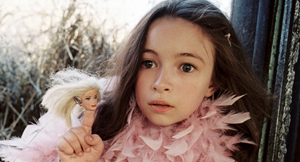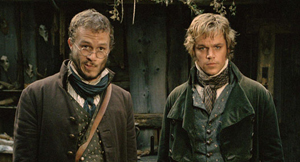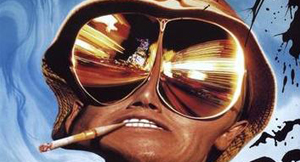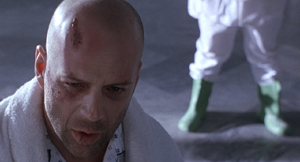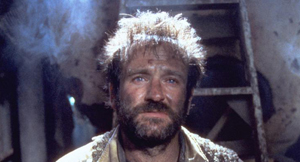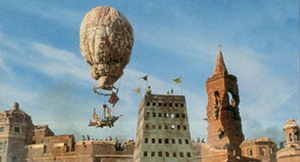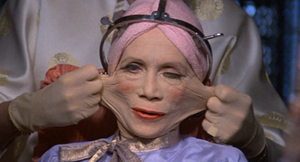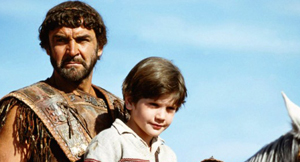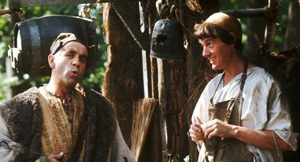
Production
Production proved to be very painful for all concerned, especially Terry Gilliam (see picture). Shooting started at Cinecitta in September 1987. From the first moment, there were delays. Filming during the day was intolerable due to the heat and, consequently, shooting was allowed only at night. Progress remained slow over the next few weeks, and as a result Gilliam fell out with Schuhly. Language became a huge problem, increasing lost time. Gilliam longed to be back filming in London.
On hearing of the slow progress, and spiralling budget, Film Finances (the movie’s completion guarantor) became worried, and sent over their own producers. Munchausen became famous for being the biggest movie filmed in Europe since Cleopatra. As a result, the movie became a source for many scams from the local population.
A further problem arose when the Munchausen production received a lawsuit from Allan Buckhantz, who owned the rights to the remake of the 1942 German film The Adventures of Baron Munchhausen. However, Gilliam and McKeown had used the original texts, in the public domain, to create their script, and not the German film. This lawsuit continued to haunt the production. It escalated to a $300m demand from each of Gilliam, Schuhly and Columbia, until it was dropped.
On 1 October, the unit moved to Almeria in Spain. Here some beach scenes were filmed – Lawrence of Arabia was also filmed here. Slow production continued. The unit flew to Spain, but the costumes were left at the airport in Rome, delaying production even more. The unit moved to Belchite on 20 October. Belchite is a Spanish town close to Zaragoza, which was destroyed in the Spanish civil war. Here, scenes in and around the town were filmed.
On 26 October, Film Finances took official financial control of the picture. On 29 October, Gilliam was told to complete in Spain filming on 7 November. Later, Film Finances then informed everyone involved with the film that all production would stop on 7 November, and contracts would be terminated. Gilliam was still shooting in Spain, and read a report that Film Finances was to sue him.

Production continued at Belchite until the deadline was reached. The sequence where the balloon flies over the town walls was scheduled to be filmed on the last day. If it could not be filmed, then it would be too late. However, at the final stages of the last day, a perfect shot was achieved. The crew left Spain, but shooting did not restart.
Back in Italy, there were rumours that Gilliam would be replaced as director. However, Columbia were strict in saying that they had a deal that they should receive a Terry Gilliam film. If a film was delivered by any other director, then Columbia could refuse to buy the film. As a result, Gilliam was stuck with the Baron.
Gilliam said: “I remember when we could not figure out exactly what should go – it was the eleventh hour and two days before crisis point. Film Finances were going to sue me for fraud. I found that amusing considering the subject matter we were dealing with. But when they started getting really heavy, David Tomblin, my assistant and associate producer suddenly called and said “Call you lawyer, the game’s up!” Charles McKeown got so angry about it we shot through the script in less than an hour and came up with revisions the financiers found acceptable. Telexes, cables and memos were flying about in all directions and at one point a Film Finances guy pissed me off so much, I punched out a car windscreen. I couldn’t believe I’d done it or let the situation get so out of hand. I felt I had reached the end and laughed at the threat of replacement by lower echelon directors because, by this stage, they were welcome to it. No one would have touched it with a barge pole. I became a hostage director.”
During the shutdown, Gilliam and McKeown negotiated with Film Finances and Lloyd’s of London to cut expensive scenes. Out went the huge chess board sequence at the Sultan’s palace. Also, the population of the moon was reduced from thousands to just two! The King of the Moon part was substantially reduced, and Sean Connery pulled out of the project. Robin Williams agreed to play the part of the King, but his agent insisted that his name not be included in any promotional material associated with the film. Production was restarted on 23 November 1987, with a much revised, but cheaper script. At this point, $5m of unpaid bills were found in Schuhly’s office.
Shooting continued to be tortuously slow, and the cast and crew came down with illnesses, due in part to sheer exhaustion. When the live action work was completed, much model work was still required. This was all moved to Pinewood following disappointment with Cinecitta. Nine weeks were taken to finish this work.
The final cost of the movie was $45m. It faced mixed reviews, and was not a box-office success in the States, and Gilliam blames Columbia executive Dawn Steel for this. It was a moderate success in Europe and subsequently performed well on video.
Other Information
- Despite the many problems with Columbia, Gilliam’s next film, The Fisher King was for Columbia TriStar.
- At the end of filming The Fisher King, Gilliam found out that the video cameraman assigned to the film was in fact Allan Buckhantz’s son.
- Schuhly tried and tried to get Marlon Brando to star in Munchausen.
- It is rumoured that Michael Winner read through the script of Munchausen when it was considered that Gilliam should be replaced.
- A moon city set was to have been built at Pinewood. However, since there was no money left to do this, Gilliam took the sketches of the designs, and stuck them to a board. The 2D buildings were then moved forwards/backwards and left/right. The result is bizarre and effective.



